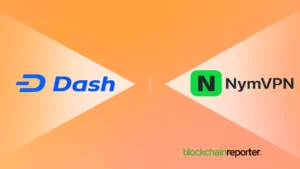
Centralized crypto exchanges manage user accounts and capital, settle disputes, and invest in security measures, but they collect user information without anonymizing it, which runs contrary to cryptocurrency principles. They’re easier to navigate if you don’t have experience and generally a safer choice than decentralized exchanges, but there are exceptions; few can forget the collapse of FTX in late 2022.
Users of decentralized exchanges, which don’t collect personal information, retain control of their funds, unlike CEX users, but they can be less secure and require some experience.
Hybrid exchanges are sometimes described using the terms CeDeFi and HEX. They try to blend the core strengths of CEXs with the openness of DEXs while avoiding the drawbacks of each type. They enhance security by combining centralized trading functions with decentralized asset custody. We examine the best exchanges in these three categories and provide details on the pros and cons of CEXs, DEXs, and HEXs.
1. JuCoin – The Best Hybrid Exchange
JuCoin became Asia’s dominant cryptocurrency exchange in 2015 and transitioned into a digital asset ecosystem following a strategic acquisition in 2024. Its unique approach combines decentralized opportunities with centralized security, giving access to an expanded suite of elements such as JuChain, a blockchain providing scalable infrastructure; JuOne, an AI-encrypted smartphone; and JuPay, which offers direct crypto-to-Alipay conversion, doing away with withdrawal friction.
Traditional exchanges’ focus on volume and fees is increasingly deterring users, especially those new to crypto. JuCoin reimagines the concept of a cryptocurrency exchange as an inclusive service enabler, prioritizing user experience and value and eliminating friction. It does away with complex bridge processes, wallet setups, and multi-platform navigation. You can use the exchange interface to trade blockchain tokens without seed phrases or external wallets.
Users stake tokens to vote on project listings, earning rewards and democratizing decision-making. When the initial exchange offering of JuCoin’s native JU token achieved an oversubscription of 26,820%, equivalent to over $170 million, JuCoin provided full refunds and gave out JU. Refunding the offering and distributing tokens left profit without harming the JuCoin community, inspiring support that is now paying off. The native token was at an all-time high of $19.58 on August 22, up 124.9% in value over the past year.
This milestone reflects strong market momentum and growing interest in one of the few true hybrid exchanges. Unizen and GRVT, widely marketed as hybrid exchanges, are actually a DEX aggregator and a self-custodial CEX, respectively.
2. Kraken – The Best Centralized Exchange
Kraken was one of the first crypto exchanges in the industry and one of the very few never to have suffered a hack and lost customer funds. Some of its industry-leading security protocols include cold storage (offline), granular user permission settings, proof-of-reserves audits, and integrated Kraken Wallet functionality.
The exchange offers products and services for users of different backgrounds, from user-friendly mobile apps for beginners to Kraken Pro, which features a powerful interface for more advanced traders. Kraken has licenses to operate in North America, Australia, the UK, the EU, and several other regions. Its focus on security, compliance, and transparency has helped earn the trust of users and regulators.
You can start using Kraken with a deposit of just $10 and take advantage of some of the most reasonable fees in the industry (maker fees 0.00% to 0.25%, taker fees 0.10% to 0.40%). Four hundred and fifty cryptocurrencies are available for trading. There is a helpful range of educational resources and access to desktop, mobile, and web-based trading platforms. Kraken does not allow cryptocurrency options trading.
3. dYdX – The Best Decentralized Exchange
This Ethereum-based DEX is suitable for frequent traders as it uses L2 technology to speed up transactions and reduce gas fees. It specializes in perpetual contracts with leverage of up to 25x and lets users manage their assets without intermediaries. It also offers yield farming, staking, and margin trading, and focuses on governance through its DYDX token. L2 scaling technology is leveraged via StarkWare.
Leading security firms have audited the exchange’s smart contracts, ensuring transparency through extensive documentation. The platform encourages customers to use hardware wallets for additional security. Like most DEXs, it’s best-suited for advanced traders, who can take advantage of complex strategies like scalping, hedging, and automated trading via its API. A TradingView integration enables advanced technical analysis.
You can access a detailed overview of your performance metrics, positions, and holdings through the portfolio tab, enabling strategy adjustments and effective portfolio management. Beginners may find the complex interface challenging, and the assets available are limited compared to some centralized exchanges.
CEX vs DEX vs HEX: Clarifying fees, ease of use, security, and privacy
Centralized exchanges offer an easy way to buy crypto with fiat and intuitive interfaces for beginners, as well as higher liquidity than DEXs. They typically cooperate with regulators to stay compliant as the legislative landscape undergoes changes and offer features you’re less likely to find at a decentralized exchange, like customer support.
You are required to store your cryptocurrency on your CEX of choice, and you won’t have access to your private keys. Losing your assets due to a hack or bankruptcy is not out of the question. Those concerned with privacy won’t find centralized exchanges the best option, as they require all potential customers to submit personal data in compliance with KYC regulations.
Users of decentralized exchanges trade directly without any entity acting as an intermediary, but DEX interfaces tend to be difficult to use, making them unsuitable for beginners. Users maintain control of their private keys and aren’t required to deposit their funds in an exchange account. They can use a self-custodial wallet like MetaMask to approve transactions.
A central authority determines the prices offered by centralized exchanges, but on DEXs, automated market maker algorithms set them automatically. Users provide the liquidity, which is why decentralized exchanges have lower liquidity compared to CEXs, and executing transactions can take longer. DEXs neither offer a way to convert crypto to fiat nor allow users to buy crypto with fiat.
Hybrid exchanges incorporate decentralized privacy features while offering the quick, low-latency transactions typical of centralized exchanges. Order matching may be centralized and fast, while settlement or custody may be decentralized, with the user keeping their private keys. Some hybrids abstract away DeFi complexity but still let users access on-chain assets. They combine centralized infrastructure (order book, high-frequency trades) with decentralized settlement and may allow both custodial and non-custodial modes.
Hybrids aren’t necessarily much safer than CEXs because hackers may target their centralized elements. Regulatory compliance can also be a challenge because hybrid platforms would theoretically need to adhere to the legal guidelines governing both centralized and decentralized exchanges. Liquidity issues may affect price stability and order success.
Which type of exchange has the lowest fees? The answer isn’t straightforward. Small trades on Ethereum-based DEXs can be expensive if the gas fees exceed the trade value. For larger trades, fees charged by DEXs on Solana or Polygon can be the same or lower than CEX fees unless there are hidden withdrawal fees. CEXs are almost always cheaper for high-frequency trading.
Transaction fees can be higher on CEXs to account for services such as fiat exchange, security, and customer support. DEX platform fees tend to be lower, but these exchanges may incur higher gas fees if the respective network is congested. A hybrid exchange’s fees are optimal as long as it provides valuable services, uses blockchains with low gas fees, and manages to combine some of CEXs’ and DEXs’ strong points.









